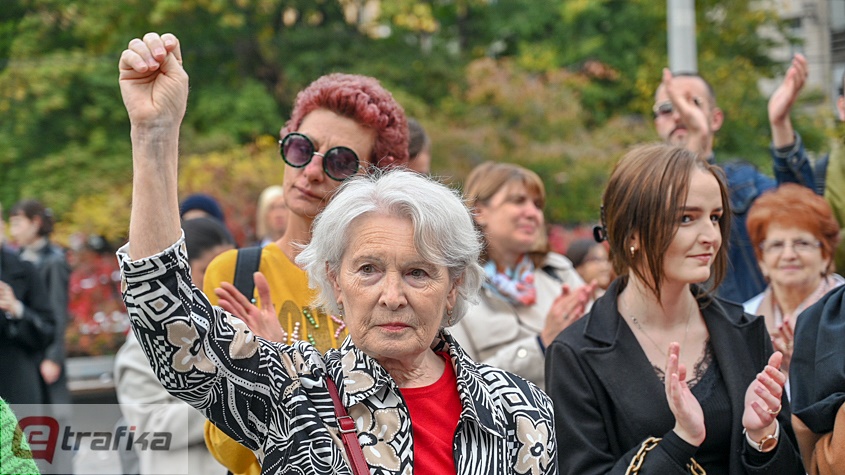“Women are not safe in Bosnia and Herzegovina. Competent authorities, the institutions, have definitely failed here, because they are the ones who should serve the people and instead of serving us they make us feel afraid of them. We, as women, do not dare to trust the police and the judiciary because they have betrayed us so many times before, and the major problem is actually the fact that competent organisations and institutions are not doing their job.”
Written by: Snjezana Anicic Petkovic; Photograph taken by: Ajdin Kamber; Video by: Vanja Stokic and Ajdin Kamber
Ana Tikvic, one of the participants in the protests held in Sarajevo, tells us this. Women and men took to the streets in 19 towns in Bosnia and Herzegovina, demanding that a criminal act of femicide be incorporated into the criminal legislation. The killing of woman by her ex-partner, matrimony partner, or common-law partner is still treated in the BaH judicial system as a crime of murder, but it is actually femicide which is still not recognised in the laws in the territory of BaH, although it is something that often happens in our society. Femicide is a murder of woman because she is a woman, in other words a gender-related murder.
The recent murder that took place in Bihac shocked the entire public, but it also motivated women’s organisations and activists to go out and say “it is enough”. There were protests held in 19 towns, at which the protesters demanded that femicide be incorporated into the Criminal Law as a specific criminal offence, and that the competent institutions react on time to prevent such incidents in the future.
Ana Tikvic points out that the reason for the protests is also the fact that BaH has not yet started implementing the Istanbul Convention, which our country has ratified back in 2013. She is of the opinion that women are not safe in BaH, nor in the entire Balkans or globally. Amila Cengic, who has also participated in the protests, shares her opinion. She joined the protests to support all women who had experienced some type of violence.
“I am personally appalled by the situation, not only in BaH, but in the entire Balkans, and we all want to send a message that this is not OK, that a woman is not an object, that a woman is not someone who should be treated as an object. We advocate for women’s rights and we have all gathered here with one goal, with one message, which is to improve the position of women and to simply change the system and the mentality of people in BaH and that we just want to live in a better environment than the one we have found and that we wish to try to change this world”, Cengic is firm.
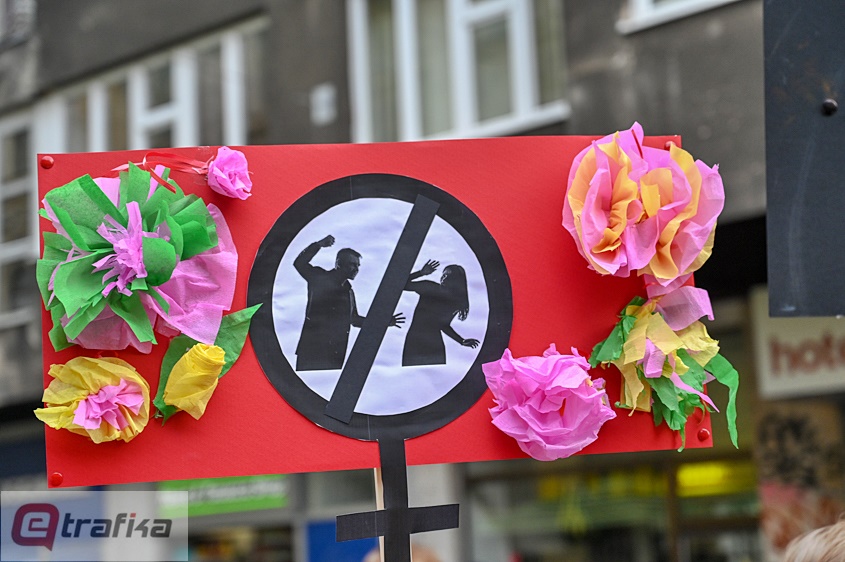
All our interlocutors are optimistic that the protests will help in a way that the politicians and the institutions will finally take this problem more seriously. Ivanka Markovic, Professor at the Banja Luka Faculty of Law, recalls that the introduction of criminalization of domestic violence and family violence was slow, but that a certain progress was made.
„We need to hear not only women but men as well because this is not something that concerns women only, it concerns us all. A woman is a woman, but she is also a mother, a sister, a daughter, and there is a great significance of male's role in this endeavour to introduce more severe punishment for all gender-based murders of women. Men have to be included in this initiative and have to give their contribution to the prevention of femicide. Men have to be a part of this fight, and it would really be good to have each man express his attitude towards femicide, that is, towards individual murders of women so that other members of the community could realise that this is something that affects a son, a brother, a father, and not only a mother, a sister, etc.” Ivanka Markovic says.
Tradition still prevails
The patriarchal and traditional attitude that a woman, by marrying a man, agrees to become the property of the family of her husband, is still a big problem in a country such as Bosnia and Herzegovina.
“The attitude of citizens towards the murder of woman is still not at that level at which it should be. We have to awaken the consciousness of citizens, we have to spread the idea that the murder of woman is much more than just a murder and that it has different connotations than the murder which happens as a result of some sort of gangs’ confrontation or something similar to that, and this is where the public awareness needs to be raised so that women could be properly protected from all forms of violence,” adds professor Markovic.
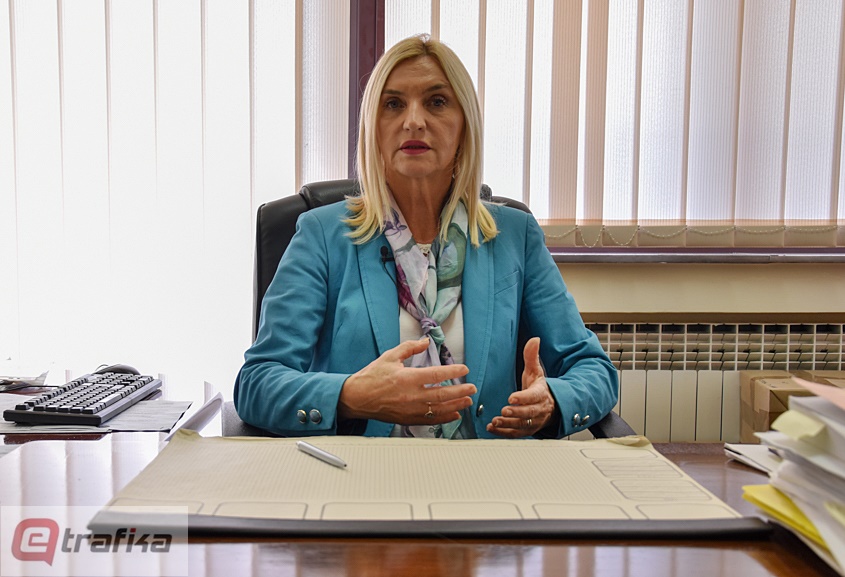
Our interlocutor highlights that a murder of woman because she is a woman is a violation of all possible general principles of protection of women which are recognized internationally, and that it is necessary to discuss this problem on a daily basis and to continously pressure the judiciary to increase sentences for perpetrators, to consider more severe punishment for such a criminal offence, but primarily to establish proper legal qualification of this criminal act so that the murder of woman, because she has left her husband or her common-law partner, would be qualified as an aggravated murder, with the corresponding criminal-legal sanction.
As Lana Jajcevic from the “United Women” Foundation explains, the woman’s role has been re-traditionalized in the recent past which is becoming more visible in all spheres of society, where the main reason for this is a strong influence of religion.
“We have a problem with the implementation of current legal framework. Basically, it is not the case that we do not have a legal framework for domestic violence and for indiscrimination, for sexual harassment, for all these types of criminal acts. However, our institutions, so to say, still behave like the mass public does. Judges and prosecutors are mainly expressing their personal opinion, therefore we often have some strange elucidations in the court verdicts. When it comes to mitigating circumstances, the argument is that the perpetrator of this serious crime is a family man, but we should all take this as an aggravating rather than a mitigating circumstance”, says Jajcevic.
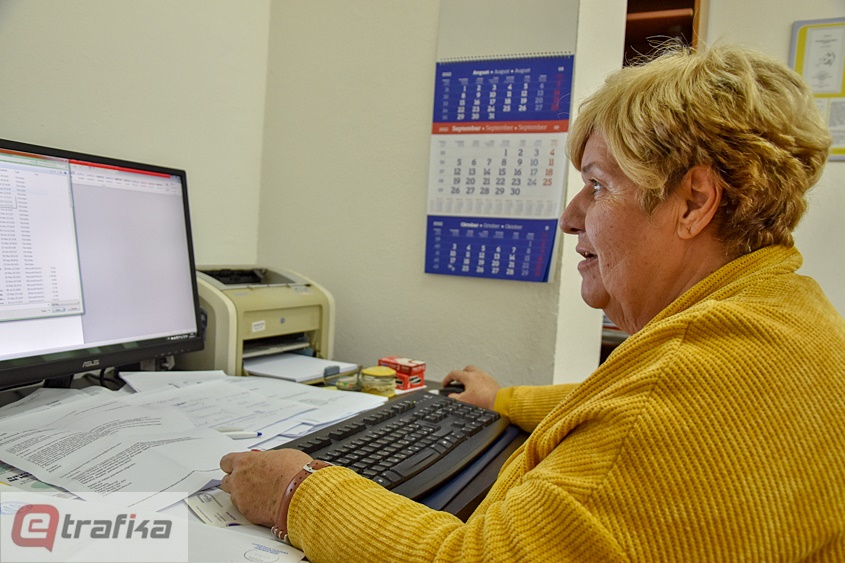
Politicians are not aware of the seriousness of the situation
Sasa Magazinovic, one of the few politicians who have raised their voice after the murder in Bihac, admits that the politicians do not take this problem seriously enough, which has been demonstrated in the practice.
„Had they taken this this problem seriously they would have shown some reaction when this topic was raised about a year and a half ago here, in the Parliament, when I asked the Ministry of Justice, and therefore the Council of Ministers, to state their position on the amendments to the Criminal Code in the sense of introducing femicide as a separate criminal offence with a specific punishment. It is sad to see that it is over now and that this topic has been entirely ignored as the relevant ones have never given any answer. So, not only are they not willing to deal with this issue seriously, but they do not think that this issue is worth expressing or taking their position on it at all. As long as we have such an attitude of politicians, we will have the same situation, we will have a great number of murders, which would be treated more seriously should the Criminal Code of BaH define femicide as a specific criminal offence”, Magazinovic says.
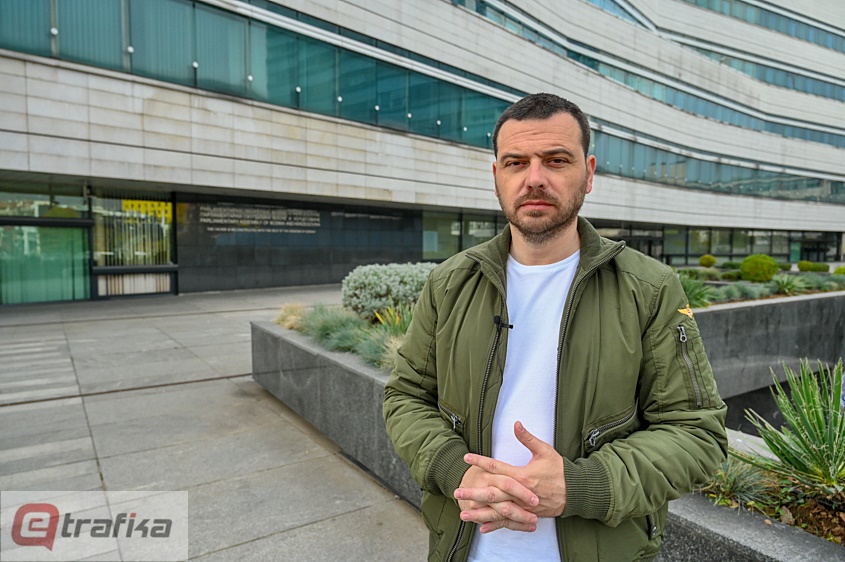
After the citizens gave their trust to him again following this year’s elections, he promised that the introduction of femicide as a specific criminal offence would be the first legal project to work on in his new mandate, in cooperation with the organisations for the protection of women’s rights. He says that he already has a draft of the initiative to be presented to the House of Representatives.
“My opinion is that even more can be done at the entity level, and that is why I am happy to see the reaction of my colleague Denis Grac. He is a lawyer from Sarajevo, who has expressed his willingness to deal with this problem at the Federation BaH level. I hope that after the RS National Assembly is constituted, there will also be some individuals ready to tackle this problem, therefore it would be really great if they could unite their efforts and launch this initiative so to avoid legal uncertainty in BaH with different legal solutions in different parts of the country”, Magazinovic advises and adds that it will mostly depend on the individuals whether something will change in the future.
The Criminal Code is currently undergoing amendments in the FBaH, which, according to our interlocutor, is a great opportunity to also deal with this problem through the Criminal Code amendments.
“Based on the information I have, in the previous period there was no specific desire to treat femicide as a specific criminal offence, but let’s see what is going to happen now”, says our interlocutor.
Lejla Heremic from the “Medica Zenica” highlights that certain problems are often discussed in public, that there are even protests organised, but everybody soon forgets about it.
“I truly hope that we will not need another case like this murder for the laws to be passed and to speed up the process. Our politicians and those who draft laws and harmonize them should react now, instantly, instead of waiting for another case and another victim of violence, another murder of a woman to happen in order to react. Unfortunately, these protests have mainly been initiated by women’s organisations and it is again women who have united themselves. However, if we, after each crime, end up on the streets and end up with the voice of women and female organisations only, then we will not achieve a lot. We are in a way the voice of all women, and we are the voice of those who cannot otherwise be heard, but for a true change to happen it is necessary that the system becomes united, that the state stands behind women and to stop taking crimes against women as nothing of major significance”, says Heremic.
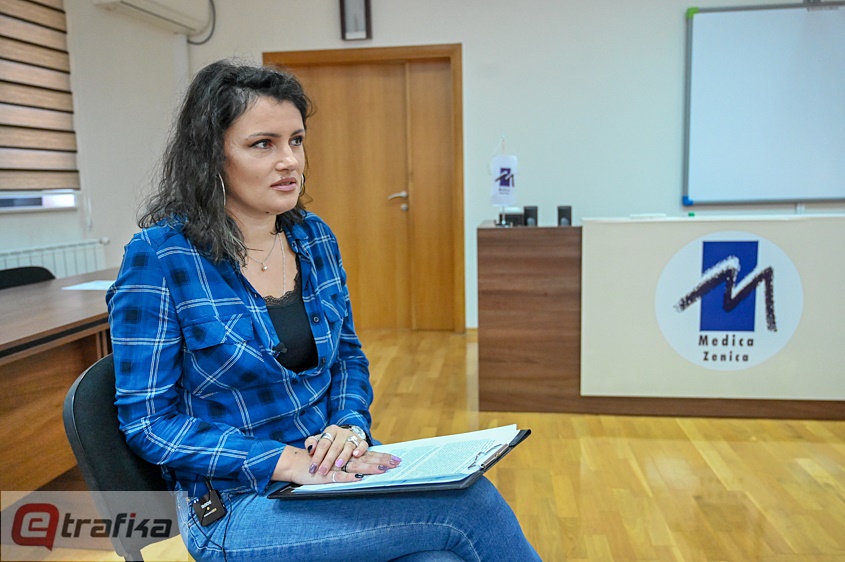
She goes on by saying that apart from harmonising legal acts, harmonisation with the Istanbul Convention is also very significant, and that apart from the harmonisation of legal acts it is very important to adequately implement these legal provisions.
“Until now, the practice has shown that there are different laws dealing with the protection from domestic violence and the protection of women’s rights. However, the problem lies in their inconsistent implementation and I really believe that everything that has been prescribed by the laws should be closely followed by all institutions so that the victims of violence could get adequate support”, adds Heremic.
As for psychological form of violence, it is difficult to recognise it and women often do not get necessary support, whereas such violence only gets worse over time and turns into a physical one which leaves visible traces.
“The support system does not give enough significance to this form of violence in general and therefore we witness different consequences which further deepen the problem. Once a woman reports violence she does not receive a reaction from the support system itself, and we simply have a situation that women do not know who to turn to because when they ask for support, that support is missing and they are left on their own. And this is the reason why it is important to raise awareness of both the citizens and the professionals that a man is not someone who has a power in the family, instead he is an equal member of the family along with all other family members, and he must not endanger anybody in any way with his behavior”, says Heremic.
Media also make mistakes
According to the OSCE research carried out in 2018 on the well-being and safety of women in BaH, there are 48% of women who have experienced some sort of violence. This year alone, eight women were killed, which the NGO sector finds alarming. Still, there are no accurate records, at least not when it comes to the competent institutions. The figures we get are often the result of researches carried out by numerous organisations and associations, while it is estimated that the number is even higher than presented publicly.
“This situation, these eight murders, have united the NGO sector, although it would have been better if the murders had not happened. This are not unfortunate events, nor family tragedies, these are aggravated murders and should be qualified as such. Of course, we expect more from the politicians once they come to power after elections, whoever they are, and we will continue lobbying for the change of legal framework, for femicide to be introduced as a criminal offence into our legislation. We will definitely be persistent. Will the politicians support us? I do not know. But I expect so given that this is really a huge problem and there is a great responsibility of the politicians to create a legal framework that will protect the citizens, in this case women. I believe we will find their understanding”, Jajcevic is optimistic.
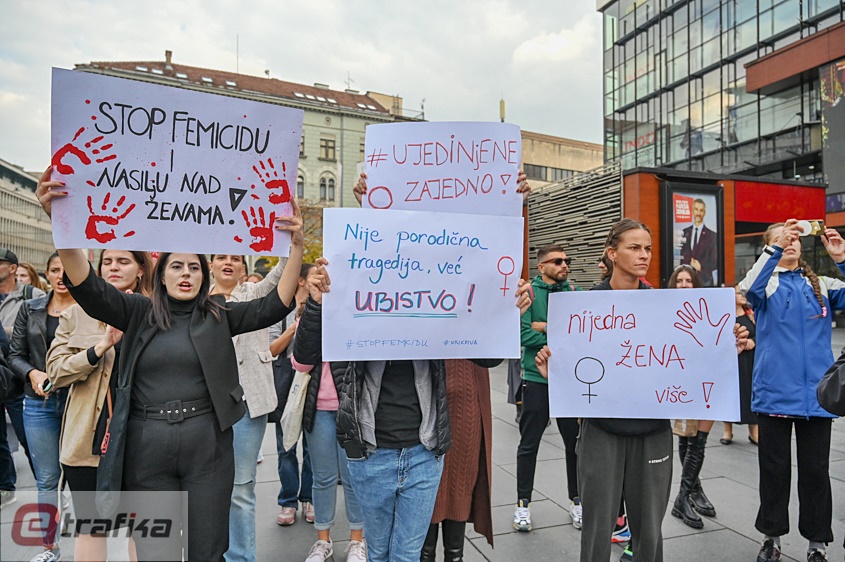
What is also worrying is the fact that media often make mistakes when reporting on this topic. They often write about femicide as a family tragedy which is a big mistake.
“I understand this, media often choose a sensationalistic approach, and they want every article to be sensationalistic; media are mostly run by private individuals who love to see sensations. We say this is not a family tragedy because very often, many times before femicide took place, in other words the murder, domestic violence had been reported. In many cases the neighbours knew about it, very often it was widely known and, as it usually happens with domestic violence, everybody kept quiet. They all prefer to turn their heads away, regardless of the fact that domestic violence is a criminal offence and has started to be legally sanctioned long ago, and we are still somehow classifying it as if belonging to a private sphere which is why we get reports from the media that this is a family tragedy”, Jajcevic emphasises.
The “Medica Zenica” also sends a clear message that femicide, just like any other type of domestic violence and violence against women, is not a family tragedy, that it is not an individual or a family problem but is rather a social problem.
“Violence in the family is a general social problem, and the media, along with professionals who are working on the protection of victims of domestic violence, have the role to raise public awareness about this. The burden regarding domestic violence cannot and should not be borne by women’s NGOs only. The state should take care of harmonising legal acts, should pass adequate laws and at the same time should have adequate statistical data, not only about femicide but about domestic violence in general, which would be unified and should serve as an indicator for launching different prevention programs or other programs aimed at the protection of victims of violence,” Heremic says.



